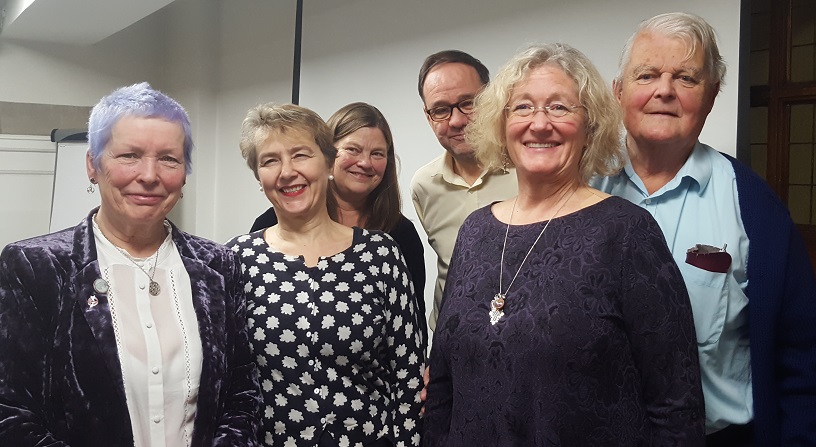No safe hands for unsafe weapons
An international gathering of Nobel Peace Prize winners and peace activists met in Friends House this week to face a challenge: how to get nuclear states on side with the Nuclear Weapons Ban Treaty.

Declaring that there are no safe hands for unsafe weapons, the activists spoke about building movements to bring about political change.
After a momentous treaty and a Nobel Peace Prize for achieving it, comes reality.
[QUOTE-START]
We have to build the movement about the Ban Treaty and against nukes and I believe that it is inseparable here in the UK from the question of Trident.
- Kate Hudson, CND
[QUOTE-END]
In a historic vote last summer an overwhelming majority of UN member states agreed to outlaw nuclear weapons. The Nobel Peace Prize for achieving that went to the International Campaign to Abolish Nuclear Weapons (ICAN) a coalition of non-governmental organisations in one hundred countries. However, alongside France and the US government, the UK government refused to sign saying it is committed to the Non-Proliferation Treaty, which aims to prevent the spread of nuclear weapons and weapons technology.
Rebecca Johnson co-founder of ICAN said, “The Nobel Peace Award gives us an amazing opportunity … it gives us a profile, a platform, an opportunity for fundraising and awareness raising and we have set as the centrepiece for that 1000 days to bring the treaty into force."
She emphasised working with parliament and mobilising civil society as well as framing getting rid of Trident, preventing Trident replacement within the multilateral context of the Nuclear Ban Treaty that the UK is going to sign. “The question is when not whether."
Kate Hudson of CND, UK said, “We have to build the movement about the Ban Treaty and against nukes and I believe that it is inseparable here in the UK from the question of Trident."
There is huge enthusiasm – and tiredness. Janet Fenton of CND Scotland and Northern Friends Peace Board said the vast majority of Scottish parliamentarians signed up to the parliamentary pledge. While Timmon Wallis of Treaty Compliance Campaign, USA and (formerly of QPSW) spoke about a tired and seemingly defeated peace movement there. But he also spoke about challenging where the power lies, in US corporations, referring to the 'Don't Bank on the Bomb' campaign.
[QUOTE-START]
We have set 1000 days to bring the treaty into force.
- Rebecca Johnson, ICAN
[QUOTE-END]
Russell Whiting of Christian CND said, “Jesus tells us to be seekers of peace and he tells us to look after each other and be stewards of God's creation and there is no better way of seeking peace and being peacemakers than to get rid of a weapon which poses an existential threat to God's creation."
Quakers have long been opposed to nuclear weapons. Quaker regard for the sanctity of all life leads them to say that all killing is wrong. The representative body, Meeting for Sufferings declared in 1955 that, 'To rely on the possession of nuclear weapons as a deterrent is faithless; to use them is a sin'." (Meeting for Sufferings, 1955, Quaker faith & practice 24.41).
Quakers in Britain hosted the discussion in Friends House. It was organised by Quaker Peace & Social Witness (QPSW), Christian CND, Religions for Peace UK, Fellowship of Reconciliation and London Region CND and chaired by Bruce Kent (British political activist).